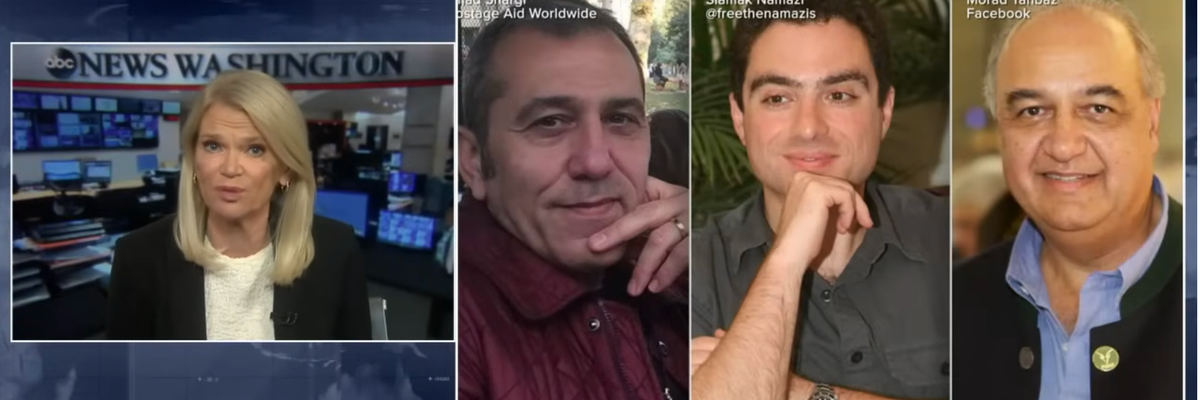After years of discreet negotiations mediated by Qatar, Oman and Switzerland, the U.S. and Iran have reportedly reached an agreement according to which Iran will release five imprisoned dual Iranian-American citizens in exchange for the U.S. release of five Iranians and Tehran gaining access to $6 billion of its frozen oil revenues.
While a win for diplomacy, this deal may prove to be a one-off rather than a prelude to more comprehensive talks between Washington and Tehran on other matters of discord, notably Iran’s nuclear progress, U.S. sanctions, regional security in the Persian Gulf, and Iran’s support for Russia’s war in Ukraine.
No sooner than the deal hit the news, it provoked the howls of outrage from the predictable quarters. The hawkish Foundation for Defense of Democracy (FDD)’s Mark Dubowitz denounced the Biden administration for giving the Iranian regime the money to “fund its war against Iranians, Americans, Ukrainians, Israelis and other innocents.”
FDD’s senior adviser Richard Goldberg, who served on Trump’s national security council while still being paid by FDD, deplored the deal as the “terrorism sanctions relief.”
Republican presidential hopeful and former Vice President Mike Pence also chimed in to attack Biden for paying “the largest ransom in American history to the mullahs in Tehran.” Exiled activist, Masih Alinejad, called on the U.S. to ask its allies to cut all diplomatic relations with Iran “until all innocent political prisoners are free.”
The outcry is clearly politically motivated, as it seeks to depict Biden as weak and soft on Iran. Yet on substance, the hawks’ objections to the deal are based either on ignorance or the deliberate distortions of facts.
To begin with, the $6 billion is not the money the U.S. is going to pay Iran to “buy” the prisoners’ freedom. These are Iranian assets in South Korea earned from the oil sales and frozen by Seoul under pressure by the Trump administration following its unilateral withdrawal from the nuclear agreement with Iran known as the JCPOA. This was followed by the introduction of unprecedented sanctions against Tehran, even though according to Trump White House officials Iran had been complying with its commitments under the 2015 deal.
Iran is essentially getting access to its own money which was withheld on no other legal basis than unilateral U.S. sanctions. And even that access is subject to a number of conditions.
According to the report in The New York Times, the funds in South Korea will be transferred to a bank account in Qatar under the control of its government — a close partner of the U.S. — to ensure that the funds can be used only to purchase humanitarian goods, such as medicine and food.
Iranians could justifiably view these limitations as infringing on their sovereign rights. Yet, the government is beset by economic hardship and rising public dissatisfaction and likely had no choice but to acquiesce to these terms.
Even the limited relief provided by this deal should still come as welcome news to the administration of Iranian President Ebrahim Raisi. Biden can also claim a win: the release of the unjustly imprisoned Americans at no actual cost to the U.S. Whatever the hawks’ vitriolic objections, granting Iran access to its own money and prisoners, in a strictly monitored and conditional way, cannot be seen as a major U.S. concession.
The broader lesson of this deal is that diplomacy still works: it is diplomacy that ultimately delivered the release of the Americans and hopefully will ensure their safe return home. If Biden had listened to the likes of FDD, Alinejad, and others who demand the perpetuation of Trump “maximum pressure” policy, the chances are that the suffering of the imprisoned Americans would be prolonged. Biden was right to ignore the hawks.
Unfortunately, however, the deal is unlikely to result in badly needed broader discussions between Washington and Tehran on their many differences, let alone a revived nuclear agreement. Biden’s priorities in the Middle East demonstrably do not include any kind of rapprochement with Iran.
Instead, he has thrown his weight behind the efforts to forge a deal between Israel and Saudi Arabia, following the blueprint of his predecessor-brokered Abraham Accords. In exchange for normalizing relations with Israel, the Saudis are demanding that Washington deliver a NATO-style commitment to their defense — presumably against their chief regional rival, Iran. Biden reportedly is considering it.
Iran, on the other hand, continues its nuclear advances and enhancing military cooperation with Russia, while pursuing its “look to the east” foreign policy. There are influential voices in Iran, such as the former foreign minister and head of Iran’s atomic organization (and some speculate a potential presidential candidate) Ali Akbar Salehi who call for comprehensive talks with Washington. And the elections to the Majles (the parliament) next year may yet see a comeback for the moderate and pragmatic forces due to Raisi’s deeply unpopular culture wars, including his stubborn insistence on enforcing mandatory veiling for women.
Yet any fundamental shifts from the current hardline ideological policies in the near future seem far-fetched.
The U.S.–Iran deal is a welcome and important development: if fully implemented, it will free the Iranian-Americans who should never have been imprisoned in the first place. It would also provide a much-needed economic relief for the Iranian people, at least in covering their basic needs. But the deal is likely to remain transactional rather than provide an opening for a broader dialogue between the U.S. and Iran, for which neither side currently appears to have much appetite.
















